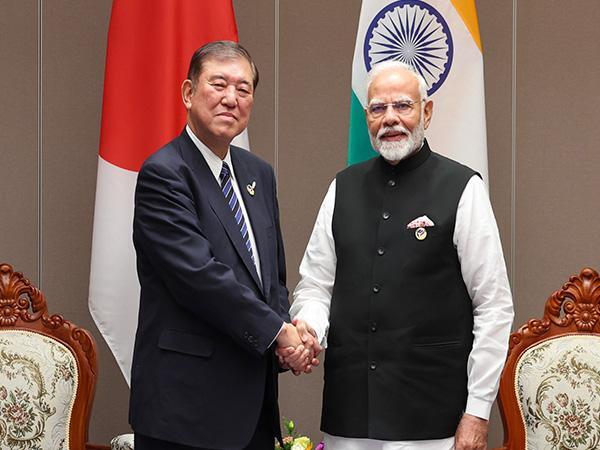
Our Technology & India’s Talent Complement Each Other: Japan PM
In a recent address at the India-Japan Joint Economic Forum with Prime Minister Narendra Modi, Japan’s Prime Minister Shigeru Ishiba emphasized the remarkable synergy between Japan’s advanced technology and India’s outstanding talent, which has led to a significant expansion of economic ties between the two nations.
The dynamic duo of technology and talent has been instrumental in driving the growth of the India-Japan economic partnership, with many Japanese companies playing a crucial role in India’s ‘Make in India’ initiative. This collaborative approach has not only strengthened the bilateral economic ties but also showcased the potential of the India-Japan partnership on the global stage.
Ishiba’s remarks came as India and Japan continue to work together on various projects, including the construction of the Mumbai-Ahmedabad High Speed Rail. This ambitious project aims to reduce travel time between the two cities from the current eight hours to just two hours, making it one of the most significant infrastructure projects in the country.
The Japan-India partnership is built on the principle of mutual benefit, where India’s vast pool of skilled and talented workforce complements Japan’s cutting-edge technology. This synergy has enabled the two nations to create innovative solutions, products, and services that cater to the needs of the 21st century.
One of the key areas where this partnership has borne fruit is in the field of technology. Japanese companies such as Sony, Toshiba, and Honda have been investing heavily in India’s technology sector, leveraging the country’s talent pool to develop cutting-edge products and solutions. This has not only created new job opportunities but also enabled Indian companies to compete more effectively in the global market.
The ‘Make in India’ initiative, launched by Prime Minister Modi in 2014, has been a key driver of this partnership. The program aims to promote manufacturing in India by providing a conducive business environment, simplifying regulatory procedures, and increasing foreign investment. Japanese companies have been at the forefront of this initiative, investing in various sectors such as automotive, electronics, and pharmaceuticals.
The Japan-India partnership is not limited to technology and manufacturing alone. The two nations are also working together in areas such as renewable energy, infrastructure development, and healthcare. Japan’s expertise in areas such as solar power and wind energy has been a significant asset in India’s efforts to reduce its carbon footprint and achieve its renewable energy targets.
In the field of infrastructure development, Japan’s expertise in high-speed rail, smart cities, and urban planning has been instrumental in helping India develop its infrastructure. The Mumbai-Ahmedabad High Speed Rail project, which is expected to be completed by 2028, is a prime example of this collaboration.
The healthcare sector is another area where the Japan-India partnership has been making significant progress. Japanese companies such as Takeda Pharmaceuticals and Astellas Pharma are investing in India’s healthcare sector, leveraging the country’s talent pool to develop new medicines and treatments. This has not only helped to improve healthcare outcomes in India but also enabled Indian companies to compete more effectively in the global market.
In conclusion, the partnership between Japan and India is a shining example of how technology and talent can come together to drive economic growth and development. The synergy between Japan’s advanced technology and India’s outstanding talent has enabled the two nations to create innovative solutions, products, and services that cater to the needs of the 21st century.
As Prime Minister Ishiba aptly put it, the partnership between Japan and India is built on the principle of mutual benefit, where each nation complements the other’s strengths and weaknesses. This collaborative approach has not only strengthened the bilateral economic ties but also showcased the potential of the India-Japan partnership on the global stage.
News Source:



